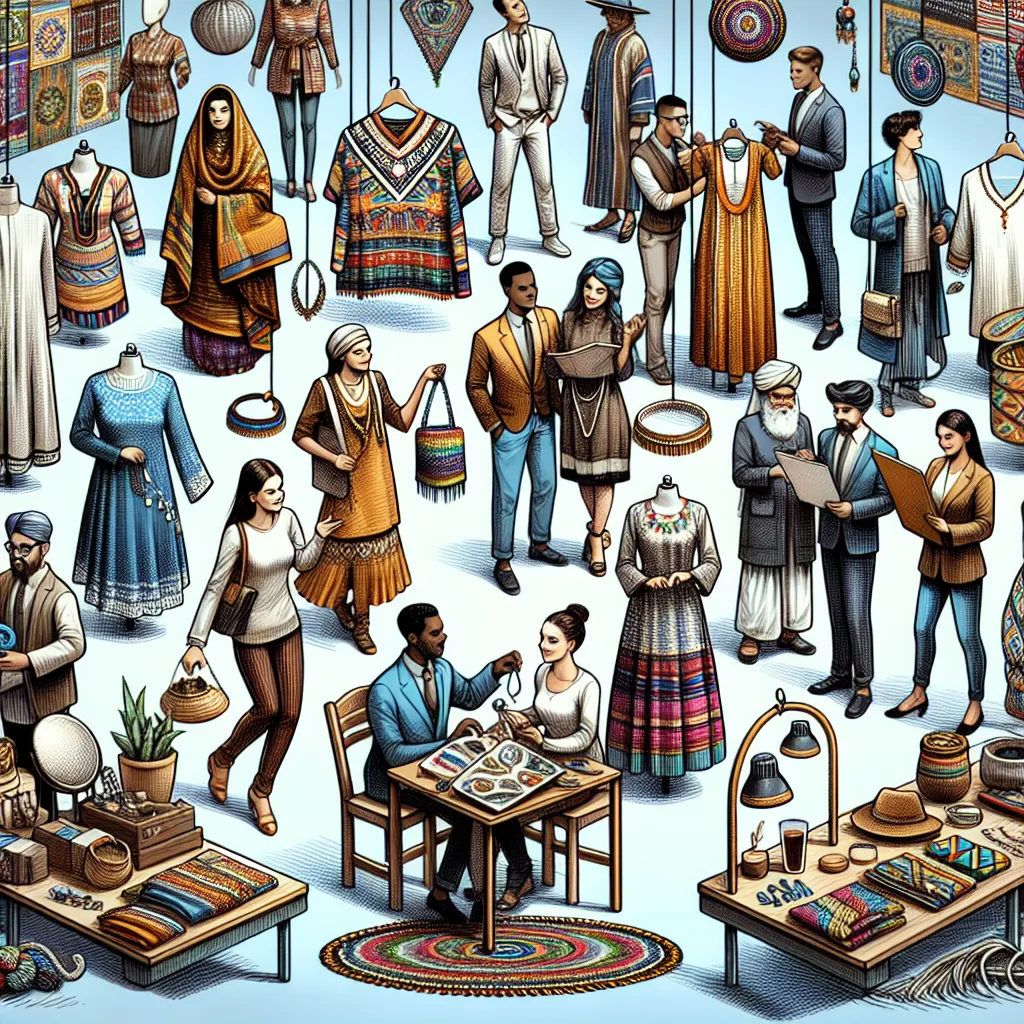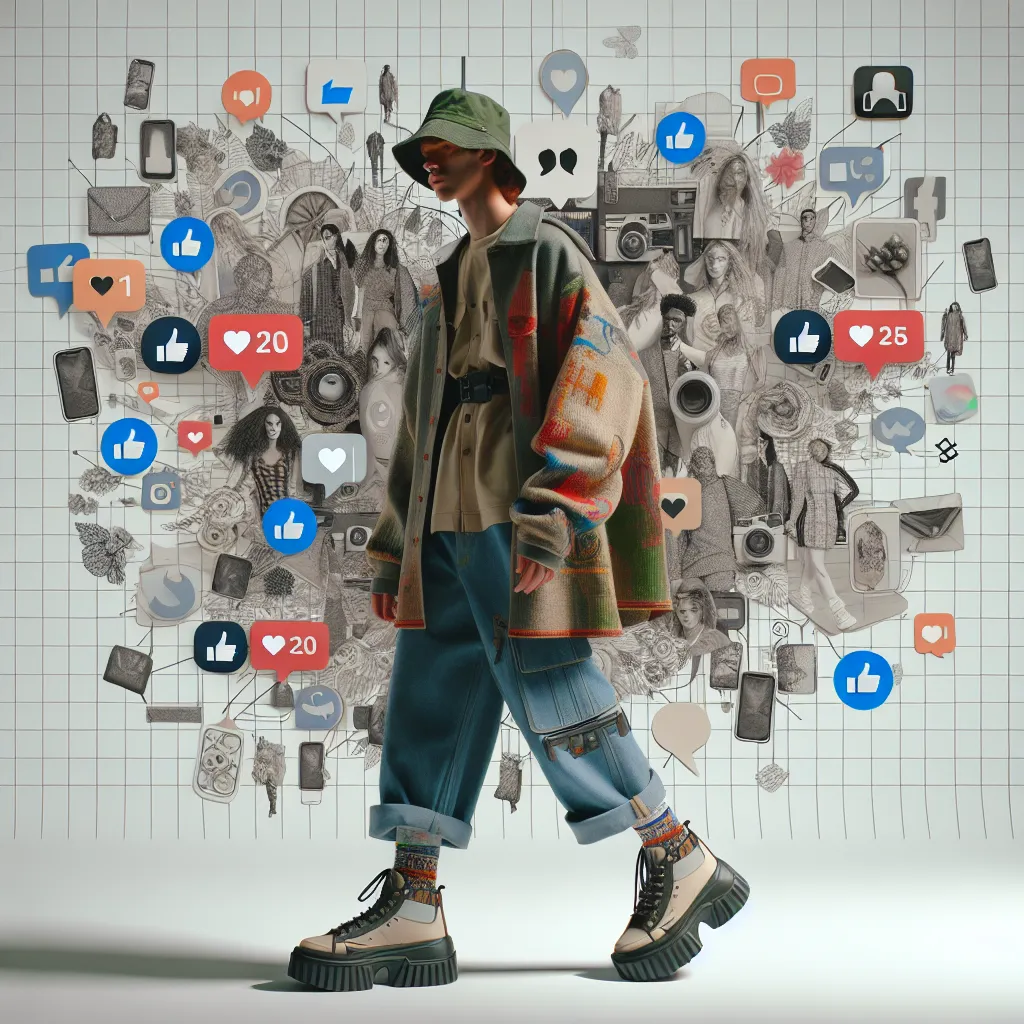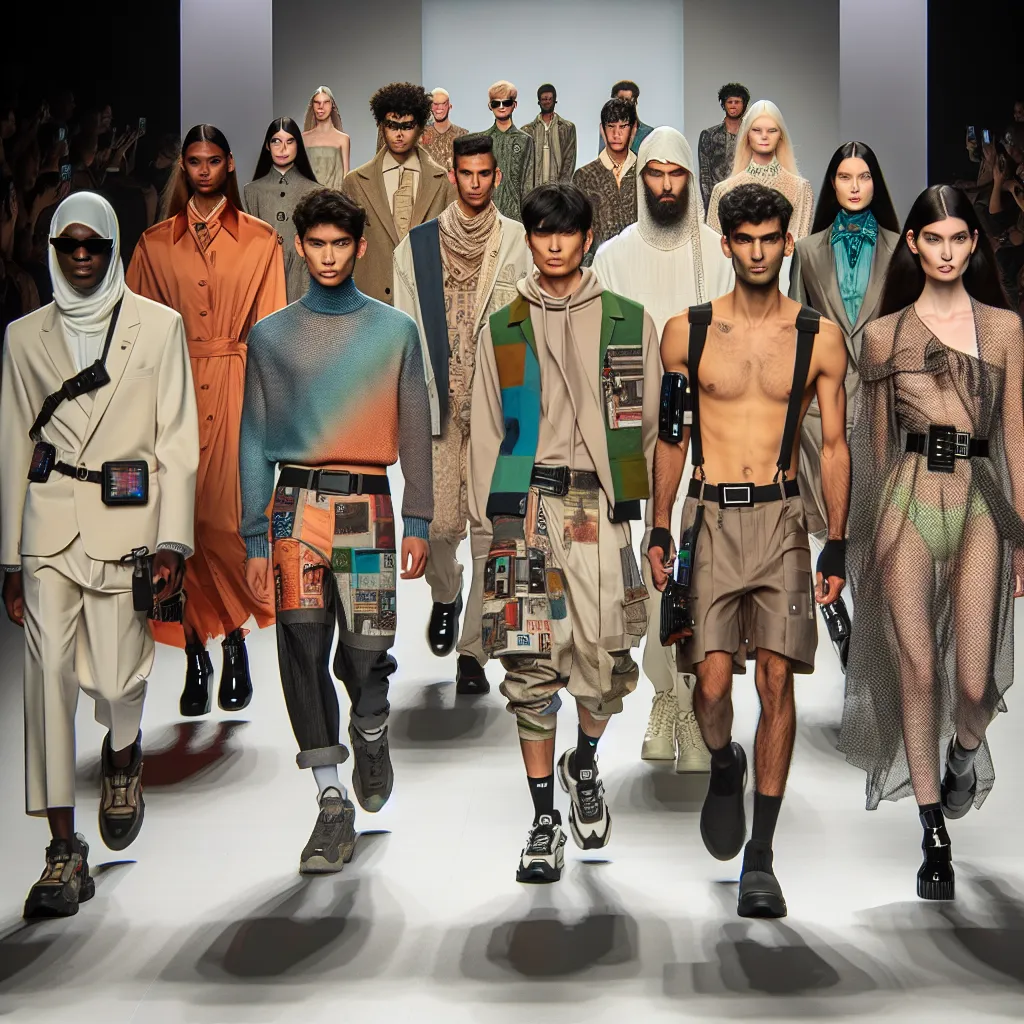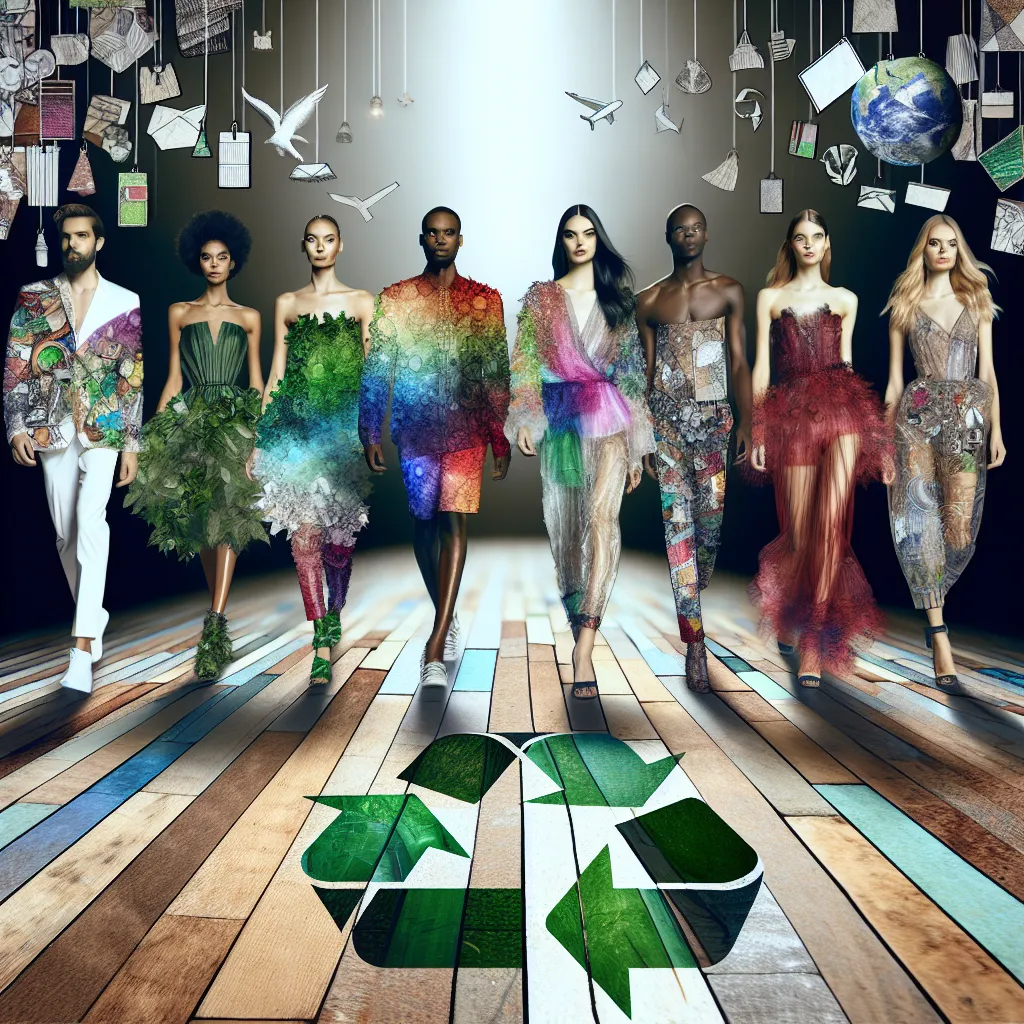Innovative Materials: A Look Into the Future of Sustainable Fashion
One of the most exciting developments in the realm of sustainable fashion is the emergence of innovative materials that are revolutionizing the way we think about clothing production. As consumers become more conscious of the environmental impact of their purchasing choices, designers and manufacturers are exploring new avenues to create sustainable clothing that not only looks good but also minimizes harm to the planet.
One of the key trends in the sustainable fashion landscape is the use of cutting-edge materials derived from organic sources such as pineapple leaves, orange peels, and mushroom roots. These biofabricated materials offer a sustainable alternative to traditional textiles, as they are biodegradable, require fewer resources to produce, and often have a smaller carbon footprint. For example, pineapple leather, also known as Piñatex, is a byproduct of the pineapple industry, offering a cruelty-free and eco-friendly alternative to traditional leather. Similarly, mushroom leather, or Muskin, is derived from mushroom caps and offers a versatile and sustainable material for clothing and accessories.
Another trend gaining traction is the use of recycled and upcycled materials in fashion. Designers are finding creative ways to repurpose post-consumer waste, such as plastic bottles and industrial offcuts, into high-quality textiles for clothing. This not only helps reduce the amount of waste in landfills but also minimizes the need for virgin resources, contributing to a more circular and sustainable fashion industry.
Furthermore, advancements in technology have opened up new possibilities for sustainable materials, such as lab-grown textiles and innovative dyeing processes that minimize water usage and chemical pollution. For example, companies are developing fabrics made from cellulose and algae, which have the potential to significantly reduce the environmental impact of textile production.
As the fashion industry continues to evolve, the integration of innovative materials will play a crucial role in shaping the future of sustainable clothing. By embracing these emerging trends, fashion brands can not only meet the growing demand for eco-friendly options but also drive positive change towards a more sustainable and ethical fashion landscape.
Circular Fashion: Redefining the Lifecycle of Clothing
One of the emerging fashion trends in sustainable clothing is the concept of Circular Fashion, which aims to redefine the lifecycle of clothing. Circular Fashion is based on the idea of creating a closed-loop system where clothes, textiles, and materials are kept at their highest value and utility at all times. This approach involves designing, sourcing, producing, and consuming clothing in a way that extends the life cycle of garments, minimizes waste, and reduces the environmental impact.
In Circular Fashion, the traditional linear model of “take-make-dispose” is replaced by a circular model that encompasses strategies such as recycling, upcycling, and reusing. This shift towards a more circular approach is revolutionizing the fashion industry, encouraging designers and brands to adopt innovative practices that prioritize sustainable and ethical production methods.
By implementing Circular Fashion principles, fashion brands can contribute to mitigating the environmental impact of the industry. This includes using renewable and biodegradable materials, adopting eco-friendly production techniques, and promoting a culture of conscious consumption. Moreover, embracing Circular Fashion can lead to the reduction of textile waste, lower carbon emissions, and decreased reliance on finite resources.
Consumers also play a crucial role in the success of Circular Fashion. By being mindful of their purchasing habits, supporting brands that prioritize sustainability, and engaging in clothing exchange and rental programs, individuals can actively participate in extending the lifecycle of clothing and reducing their carbon footprint.
As Circular Fashion continues to gain traction, it is reshaping the way fashion is produced, consumed, and perceived. This trend represents a positive shift towards a more sustainable and responsible fashion industry, emphasizing the importance of maximizing the use of resources and minimizing waste throughout the entire lifecycle of clothing.
Tech-Driven Sustainability: How Technology Is Shaping Eco-Friendly Fashion
In recent years, the fashion industry has witnessed a significant shift towards sustainability, with a particular focus on tech-driven solutions. Technology is playing a pivotal role in shaping the landscape of eco-friendly fashion, revolutionizing the way clothing is designed, produced, and consumed. One of the key emerging trends in sustainable clothing is the use of innovative materials created through advanced technological processes. From biodegradable fabrics to recycled fibers, brands are leveraging cutting-edge technologies to develop textiles with minimal environmental impact.
Furthermore, the adoption of data-driven practices and artificial intelligence (AI) is enabling fashion companies to optimize their supply chains and reduce waste. By harnessing the power of big data analytics, brands can make more informed decisions about sourcing, manufacturing, and distribution, leading to improved efficiency and sustainability. Additionally, 3D printing is offering new possibilities for on-demand production, allowing for customized, waste-free manufacturing processes.
Another area where technology is driving sustainable fashion forward is in the realm of transparency and traceability. Blockchain technology, for instance, is being utilized to provide consumers with greater visibility into the production journey of their garments, ensuring ethical labor practices and environmentally friendly processes. This emphasis on transparency not only fosters trust between brands and consumers but also encourages accountability throughout the supply chain.
Ultimately, technology is proving to be a catalyst for positive change in the fashion industry, facilitating the transition towards more sustainable and ethical practices. As advancements in tech-driven sustainability continue to unfold, the future of eco-friendly fashion looks increasingly promising, with innovation at the forefront of driving meaningful transformation.
Consumer Behavior: The Role of Mindful Shopping in Sustainable Fashion
Consumer behavior plays a pivotal role in driving change within the fashion industry, particularly in the context of sustainable clothing. The rise of mindful shopping reflects a growing consciousness among consumers regarding the environmental and social impact of their fashion choices. This shift in consumer mindset has led to an increased demand for sustainable fashion, prompting designers and brands to adopt more eco-friendly practices and materials in their collections.
Mindful shopping involves making thoughtful and informed purchasing decisions, taking into account factors such as the durability, ethical sourcing, and eco-friendliness of the clothing. Consumers are becoming more discerning, seeking transparency from fashion brands regarding their supply chains and production processes. This trend has propelled the popularity of sustainable fashion labels that embrace transparency and ethical practices.
Furthermore, the digital age has empowered consumers to access information about sustainable fashion trends and practices, enabling them to align their purchasing decisions with their values. Social media, online forums, and dedicated platforms have provided a space for consumers to share insights, recommendations, and reviews related to sustainable fashion, influencing the purchasing behavior of others.
In conclusion, the role of mindful shopping in sustainable fashion highlights a shift in consumer behavior towards more conscious and ethical consumption. As consumers continue to prioritize sustainability and ethical practices in their fashion choices, it is imperative for the industry to respond with innovative and eco-conscious solutions.




